The worst-case scenario
A dead client, an advisor accused of murder and fraud, and an industry that didn’t see it coming

By Tobias Salinger
Advisor Keith Todd Ashley allegedly told his client, James Seegan, he needed a blood sample for life insurance purposes.
Seegan had a $2-million policy and weeks earlier, Ashley had changed the beneficiary of the policy from Seegan’s wife to a trust controlled by Ashley, according to investigators. On the appointed date, Feb. 19, Ashley allegedly stopped by the client’s suburban Dallas home for the sample. Hours later, Seegan’s wife came home to find her husband dead. Seegan, who was right-handed and who didn’t own any firearms, was holding a handgun in his left hand, according to authorities.
Investigators say the request for a blood sample was a “ruse.” Police have arrested Ashley, who now faces charges for both murder and running a years-long multi-million dollar Ponzi scheme.
Seegan is one of at least nine clients allegedly defrauded by Ashley for a combined $1.9 million, according to police in Carrollton, Texas. Besides the alleged murder and complex nine-month investigation, the case displays the troubling extent of the risk of financial advisor fraud in wealth management, industry experts say.
For nearly seven years until Seegan’s death, Ashley allegedly carried out the scheme undetected by his former brokerage, Ann Arbor, Michigan-based Parkland Securities, and regulators such as FINRA that have been trying to crack down on bad actors. Yet, more than two months after his arrest, while Ashley was behind bars in jail awaiting trial, he still had not been barred from the industry.

To assess the tragic lessons of the case for firms, regulators and financial professionals, Financial Planning sent some two dozen inquiries to every party mentioned in Ashley’s charging documents, law enforcement authorities at all levels, and other experts. Ashley’s lawyers and Parkland Securities — which terminated Ashley two weeks prior to his arrest — declined to comment on the allegations.
Two experienced securities attorneys who examined the court documents but aren’t working on the case, Christine Lazaro and Thomas Lewis, raised issues they say might have blown open the alleged scheme. Neither could recall another advisor fraud case that involved a murder.
There appear to be “lots of red flags” in Ashley’s written communications with clients and outside business entities registered under his name, according to Lazaro, the director of the Securities Arbitration Clinic at the St. John’s University School of Law.
“We see this happen a lot of times when the broker is working in something like a storefront office where there isn't really good close supervision of the broker,” Lazaro says. “The idea that firms still aren't catching text messages and private emails is a little crazy.”
A dismissed forgery charge from 1991 listed on FINRA BrokerCheck should have prompted Parkland to place Ashley under heightened supervision, says Lewis, a Stevens & Lee attorney who represents wealth management firms in securities litigation. Bank transactions allegedly moving money out of his clients’ accounts and into his own also could have set off alarms, he says.
“At the end of the day, is there anything that can be done to avert this type of behavior from a really bad scheming individual?” Lewis says. “That's not an amateur putting that together. The question we have to ask ourselves is, ‘Where were the regulators during this time period and did the regulators potentially miss something that happened before this episode?’”
Ashley’s trial and client arbitration claims could shed light on these and other unanswered questions, such as the frequency of Parkland’s home-office compliance audits and branch manager inspections. Suspicious activity reports filed by banks and FINRA investigations — like one Lazaro says was likely triggered by Ashley’s Oct. 27 termination — are confidential.
FINRA and the SEC declined to comment on the case, as did local and federal prosecutors and the FBI. A grand jury in the Eastern District of Texas indicted Ashley Nov. 12 on six counts of wire fraud; a grand jury in Dallas County indicted him for murder Dec. 8. He’s incarcerated in Bowie County under a federal district judge’s Nov. 23 order.
Citing an “actively ongoing” case that is “still in its early stages,” Ashley’s attorneys, James Whalen and Ryne Sandel, said in an emailed statement that it would be inappropriate to comment. They called Ashley “a long-time community member and small-business owner with no criminal record” and noted he’s presumed innocent until proven guilty.

In his phone’s calendar on the day of his Feb. 19 death, Seegan, 62, had typed “Keith - Blood,” according to Carrollton police. Investigators believe that Ashley used the “ruse” of drawing Seegan’s blood for the update to the life insurance policy in order to inject him with a common anesthetic agent, the warrant states. A drug screen after Seegan’s autopsy found the anesthetic agent, etomidate, according to the warrant. Ashley was a nurse, in addition to being a broker.
A Nest video camera on Seegan’s doorbell showed Ashley arriving at Seegan’s home that morning, according to the warrant. About 45 minutes later, an “unknown loud noise” activated another Nest camera in the home, the document states. Ashley left six minutes after that, only to return 16 minutes later, let himself in and leave again in three minutes, the warrant says.
When Seegan’s wife Sakdida came home from work that day, she found him dead in their upstairs office with a gunshot wound on the left side of his head, according to police. In addition to the handgun resting on Seegan’s left thigh, investigators found the typed note saying “my last friend Keith Ashley will help you,” the warrant states.
After Seegan’s death, Ashley gained access to his deceased client’s cellphone when Sakdida Seegan asked for the broker’s help notifying financial institutions, investigators say. Ashley deleted messages between him and Seegan and used the phone to wire himself $20,000, according to a forensic investigation by the Carrollton police. Sakdida Seegan told police that she’s certain that the form changing the beneficiary of the $2-million life insurance policy on Jan. 24 didn’t have her real signature.
In a Sept. 3 search of Ashley’s property under a search warrant, police found multiple apparent forged documents such as an “obvious” one reporting that Seegan was giving him a “non-repayable gift” of $65,000, the warrant states. They also found a copy of Seegan’s autopsy report that Ashley had asked a brewery employee to request from medical examiners, according to the warrant.

Ashley steered the $20,000 he had wired himself to two other victims of his alleged Ponzi scheme, according to police. There’s no evidence ahead of the trial suggesting anyone detected the alleged scam before the Carrollton police.
In the Nov. 18 press release announcing Ashley’s arrest, Carrollton police referred to a “complex” investigation that took nine months and involved a collaboration with the FBI and the U.S. attorney’s office that “was crucial in pursuing justice for Seegan and his family.” Even so, federal prosecutors allege the scams went on for more than two months after Seegan’s death.
While local police focused on the murder, the federal investigators’ case zeroed in on the alleged fraud. Between December 2013 and May 2020, Ashley allegedly misdirected more than $1 million clients intended to invest in a unit investment trust product toward his own personal expenses, including casinos, credit cards and his microbrewery, Nine Band Brewing, according to his federal indictment.

Citing text messages, emails and at least six wire transfers to bank accounts for a company called KBKK, LLC, investigators say Ashley misappropriated the money after promising clients guaranteed, tax-free returns. Ashley registered KBKK as a business in Texas in 2012, listing himself as its agent, according to records from the state Comptroller of Public Accounts.
In the section for employment and outside business activities in Ashley’s detailed BrokerCheck file, he listed Parkland, A.M.R. Ambulance, the brewery and insurance sales through Midland National Life Insurance. KBKK wasn’t listed.
In addition to Parkland, representatives for Midland parent Sammons Financial Group and three banks on the other end of wire transfers declined to comment. Two other banks, UIT issuer SmartTrust, the ambulance company, the hospital where Ashley was a nurse, and the brewery didn’t respond to requests for comment.

The allegations of fraud aren’t quite as unusual as they seem. Law enforcement authorities made more than 112,000 arrests for all kinds of fraud in 2019 — a 15% drop from the level in 2015, according to the FBI’s annual crime statistics. The bureau doesn’t break out how many of the arrests involve allegations of securities fraud or related crimes.
Investment advisors and firms are the second most frequent target of SEC enforcement actions. Among cases brought by the SEC in fiscal year 2020, more than 20% charged investment advisors or other investing firms, the regulator’s annual enforcement report shows. Disgorgement and other penalties assessed by the SEC rose 8% to a record $4.68 billion in 2020.
But only certain aspects of Ashley’s case are typical. About 80% of the cases brought at the state level by Joe Borg, who has been director of the Alabama Securities Commission for 26 years, are against unregistered individuals rather than affiliated brokers like Ashley, Borg says. However, registered agents who commit securities fraud often use outside businesses that escape notice from brokerage firms and regulators until there are investor losses and complaints, as alleged in Ashley’s case, according to Borg.

In terms of violence alongside financial crimes, Borg says he more frequently sees fraudsters who have committed arson or threatened their victims — often seniors — with physical abuse. Others may harm themselves when faced with possible legal jeopardy. In one regulatory examination, an advisor told investigators, “‘I’ll be right back,’ then went in the back and shot himself,” Borg recalls.
The level of scrutiny on individual representatives varies within FINRA’s guidelines, he says.
“Each firm sets their own policy,” Borg says. “If you know what you're looking for, you can always find it. If you don't know what you're looking for in a general audit, you don't go in with the mindset that everyone's a crook.”

Indeed, the largest publicly traded independent wealth managers refer in their annual reports to the difficulty of detecting advisor misconduct. It’s an area of shareholder risk.
“Prevention and detection among our advisors, who are typically not our direct employees and some of whom tend to be located in small, decentralized offices, present additional challenges, particularly in the case of complex products or supervision of outside business activities,” according to the 2019 annual report of the largest independent firm, LPL Financial.
Industry trade groups acknowledge that fraud remains a problem. Allison Mutschler, a spokeswoman for the independent wealth manager advocacy group the Financial Services Institute, emailed a statement while noting that Parkland Securities has never been a member.
“FSI fully supports the efforts of regulators and law enforcement officials to investigate suspected fraud and criminal behavior by actors who do not represent the broader financial advice industry, and to take appropriate action to protect investors,” Mutschler said.

Parkland, fellow midsize firm Sigma Financial and their RIA, Sigma Planning, have 950 advisors, 130 employees and $22 billion in client assets, the firms’ website says. The three firms have the same owner; Jerome Rydell purchased a controlling interest in the firm previously known as Sammons Securities from Midland in 2014, InvestmentNews reported at the time.
In an email, Parkland Chief Financial Officer Brandon Rydell declined a request for an interview and said the firm has no comment on Ashley’s case.
Prior to his termination, Ashley had spent 18 years with Parkland, according to BrokerCheck. Parkland discharged him on suspicion of undisclosed outside business activities and a failure to provide the firm with notice of private securities transactions, the disclosure shows. Besides a client complaint that was denied, his only other disclosure is an arrest in 1991.
Ashley “was 17 when I signed the back of a check and was caught at the age of 18,” he wrote in the broker comment on this disclosure. Ashley pleaded no contest and the case was later dismissed, he added. Months after his arrest on the murder and wire fraud charges, Ashley’s BrokerCheck still had no mention of the legal cases pending against him.

Regulators are seeking to crack down on bad actors. On Dec. 10, SEC commissioners approved a new rule they said will “strengthen the tools available to FINRA in responding to associated persons who have a significant history of misconduct.” In proposing the rule, FINRA noted other recent actions, such as its 2018 guidance on heightened scrutiny of brokers.
At the Texas State Securities Board, regulators examined the allegations in Ashley’s case just as they do whenever a major proceeding comes to the surface, according to Commissioner Travis Iles.
“Any regulator, much less the employer, would have been unable to identify the activities unless there was a complainant that came forward,” Iles said. “We're talking about things that are nearly impossible to regulate if people are willing to take these types of actions. It's truly sad and disturbing.”
Lazaro, the director of the St. John’s Arbitration Clinic, questions Parkland’s due diligence of its brokers. But, Lazaro adds, she tries to keep fraud cases in perspective, though.
“When things go wrong, they'll go horribly wrong,” she says. “There are a lot of people who are doing the right thing and doing the right thing for their clients. We just have to hope that the system's going to work when someone doesn't do the right thing.”


